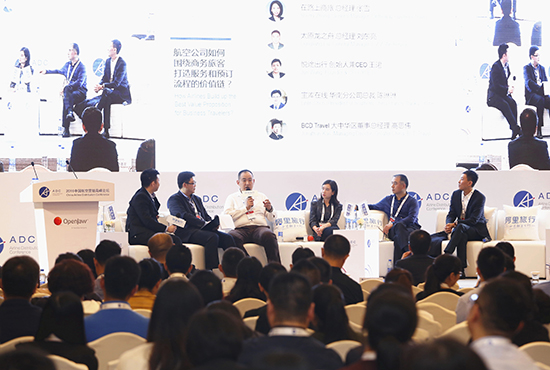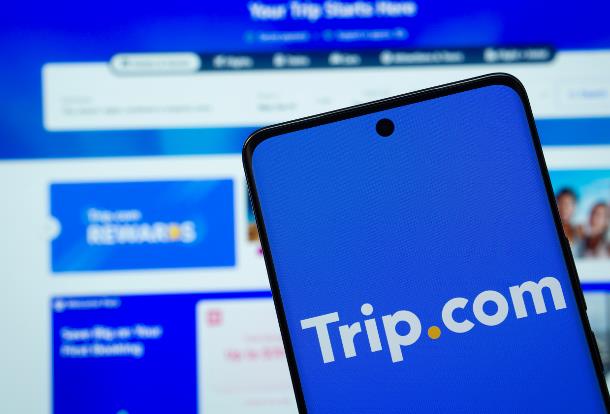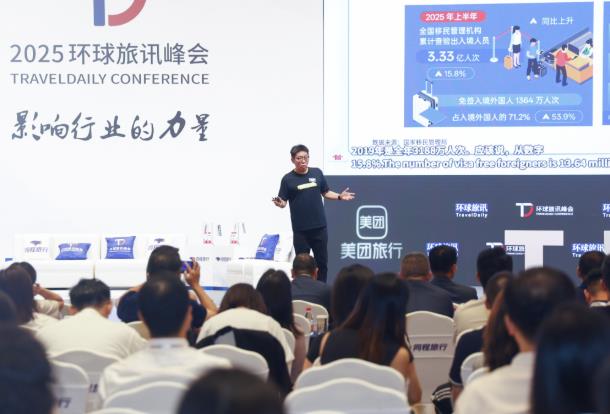ChinaTravelNews, Nicole Sy - While the early parts of TravelDaily’s Airline Distribution Conference was very heavy with airline representation, this executive panel presented a different side in the spirited debate over direct selling and distribution channels.
On the panel are Paul Li General Manager of Cooperation and Development of Hainan Airlines Sales; Sherry Zhang, General manager of Ontheway Business Travel; Liu Dongliang, L.Z.Z. Air Service’s General Manager; Chen Linlin President of South China Branch of Baoku Online; and Wang Jun, Founder and CEO of Yuetu.

Diving straight into the thick of things, moderator, Jonathan Kao who is the Managing Director, Greater China of BCD Travel, asked the panelists their thoughts on the trend of direct selling by airlines, a reaction from the price wars of recent years waged by online travel agencies (OTAs). It led to cheaper tickets, but the breaking of some ticket rules and regulations, leading to very unsatisfied passengers complaining to the airlines. Then last year, Lufthansa's move to charge distribution fees for bookings made through GDS generated reverberations in the world of travel distribution.
“Airline companies have to take everything back into their own hands to feel safe. Direct selling will be a trend which will take strong hold, but it’s still experimental,” says Chen from Baoku Online. “We have to bring things in a positive equilibrium. When they do their own direct selling, it’s a double-edged sword. They can create easier ways for customers to buy tickets, but it’s expensive to set up a system from scratch. It may or may not work.”
Sherry Zhang from Ontheway was more direct: “If airline companies are targeting to have just direct sales with clients, it is too costly for them and will cost too much human resources,” she says. “I think this is a trend that they want to have direct contact with customers (with sales). That is irreversible going forward, but who will be the driver, the customer or the airline? Nobody knows. Everyone is citing the Lufthansa example but it’s different from China, there’s too much fragmentation in the Chinese market. Maybe it will take 3-5 years for it to be more optimal.”
“We’re trying to look at multiple models in the aviation industry, the model of GDS and all relevant parts of the picture. Instead of doing business by only considering airline companies, we have to embrace a multiple player model,” starts Liu of LZZ Air Service. “If you look at the relationship between airlines and agencies, sometimes its good and bad, it’s a tricky relationship to manage. Now, airlines give agencies the feeling like they want to kill us. There are thirty rules and agreements are embedded in each ticket. We feel mistreated, what have we done?” he asks bluntly.
“It’s just the agency business is kind of chaotic. We want to stay in this marriage,” he says of the relationship between agencies and airlines. “They cannot just divorce us for no reason. They talk about the whitelist, it’s all about good communication channels, so thanks to TravelDaily for setting up this platform for airlines to talk to travel agencies.”
Paul Li of Hainan Airlines Sales believes his role more closely aligns with that of a TMC than as an airline. He agrees with the other panelists’ views on direct selling, but looks to differentiate between TMCs and OTAs. “A lot of TMCs actually earn money as dealers or agents. But for the OTA it is different. We should focus on the management of business travel from the manger’s perspective to service clients. Only by doing that, the corporate clients will know the value brought by a TMC,” he says. “TMCs are the transitional valve between pipes in plumbing. You need it to ensure a smooth flow of communications between airlines and consumers.”
Being the only panelist with a greater focus on another means of transportation, railways instead of airplanes, Wang Jun from Yuetu gives valuable insight from a different perspective. For him, air companies can fulfill service requirements compared to TMC and OTAs by building different partnerships and sharing data. “We can have different kinds of cooperation on this,” he says. “We have to work together to focus on services for profits.”
It’s difficult to discuss airline distribution without talking about the biggest new player on the field, Alitrip and its platform for business travel, DingTalk. Moderator, Kao asks the panelists what their views are on the new kid on the block, and how as a platform it will affect SME agencies.
“There’s a strong attachment to SMEs in China, but for business travel it’s not a good platform. Ctrip has tried to be that, but it’s not working out too well. We’re still experimenting, we want to figure a way out and we’re looking at software,” says Chen. “But it makes sense for all players in the ecosystem to work together. We have different tiered customers, and have different, diversified product offerings. I hope we can use the internet mindset to embrace each other and work together in a synergistic way.”
“We’ve been good partners with Baoku so couldn’t agree with him more,” says Li. “Alitrip is trying to grasp this long tail market. If anyone from an SME travels, it’s usually the president. He doesn’t have to manage it himself. It saves him labor to try to generate more profit for his company. Today, the business way of dealing with big customers is different from dealing with SMEs. In any industry there are winners and losers. It depends on future direction of Alitrip and I hope they will be successful.”
Mostly good things will come from Alitrip’s new venture, but Zhang believes there are still some core issues to be concerned about. “Alitrip already identified the trend of corporate travel, they are a very forward-seeing company. But for business travel, there’s the 20-80 rule,” she says. “Alitrip already has stated they want to seize 80% of the pie, but 80% of the passengers do not contribute 80% of the revenue. The 20% contribute more and everyone fights over them. Those 20% also have other needs other than airline tickets.”
Liu meanwhile, leans on the far end of what benefits Alitrip and DingTalk can bring to the table. “As traditional agency we learned the hard way to get customers is by cutting prices. The price is an issue for big players like us. When using a low price to compete, I believe it’s quite unethical. I don’t think anyone should engage in a price war. We have to arrive at a consensus. If we stick to the bottom line, if the market is reasonable, why talk about tricky stuff?” he reasons.
“I don’t see the potential in DingTalk, I don’t like the idea. They are not supposed to charge a service fee… it is illegal. Yesterday I learned that they suggested airline companies could engage in a price war but not on their platform,” he tells his fellow panelists and the stunned audience. “I don’t want to make the industry more chaotic. Don’t point your fingers at agencies; there are good ones and bad ones.”
But Wang explains a little of the rationale behind Alitrip’s moves. “Alitrip has a monopoly (as a platform) but if you look at list of agencies on Alitrip, they are actually SMEs,” he says. “They actually approached Ctrip, and they didn’t get a good price, so Alitrip had to develop their own system. I think it’s a good thing. I think they are very helpful to the system. They are a disrupter and can help SMEs. At the same time I think this is a good, solid business to do.”
While airlines have made their voices heard in this debate, it is refreshing to hear the from those in the middle of the value chain, who are at times demonized as not having consumer interests in mind. Time will tell whether the trend of direct selling is shortsighted or will continue for long.




